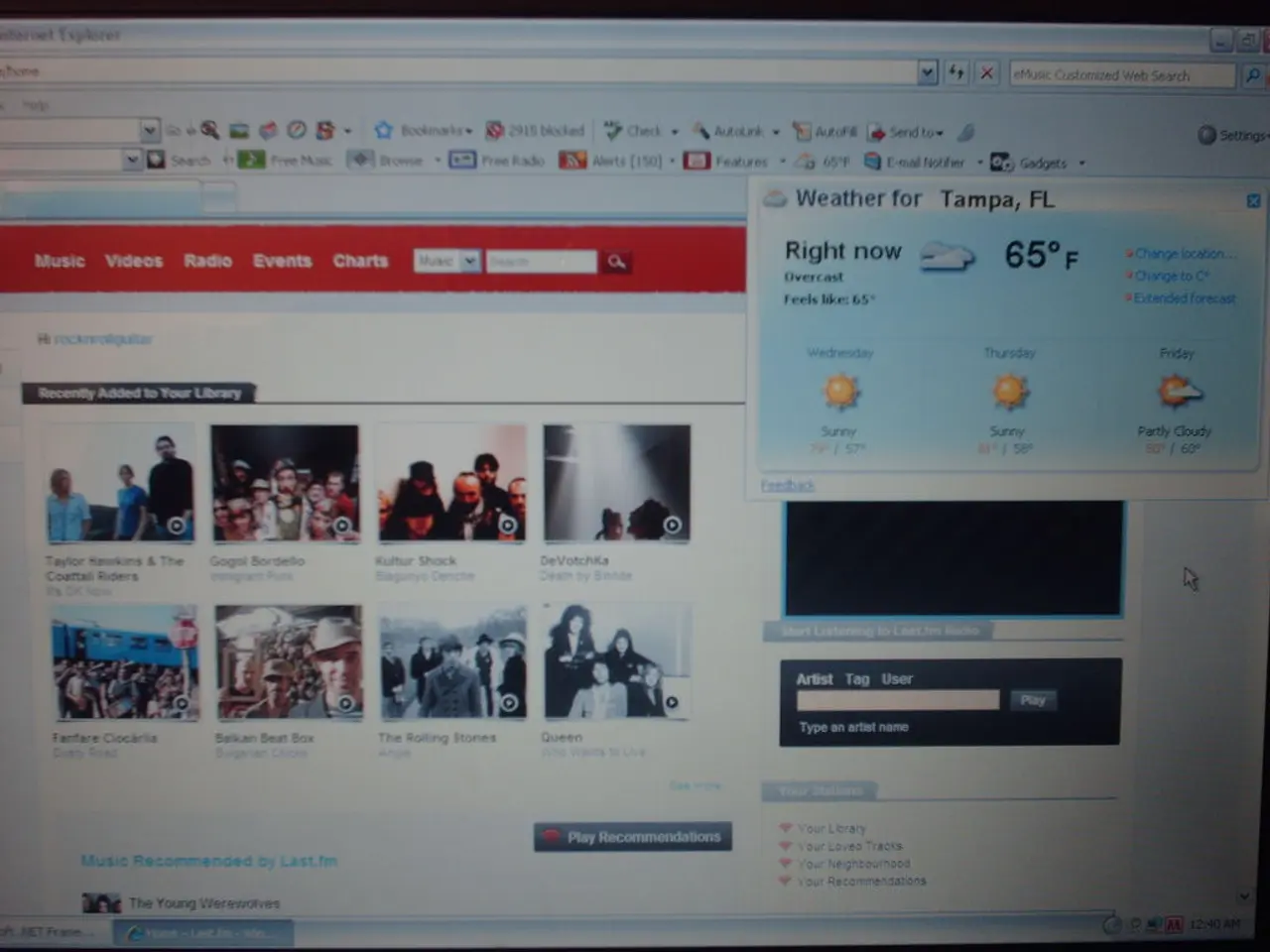Swift Strategies for Instant SEO Boost on Your Site
In the digital age, improving your website's search ranking is crucial for business success. To achieve this, utilise tools like Google Keyword Planner, SEMrush, Ahrefs, Moz, and Search Engine Land to gain a comprehensive understanding of your backlink profiles and competitor performance.
First, use Google Keyword Planner to conduct data-driven keyword research. This tool offers direct insights from Google on keyword search volume, competition, and recent trends, making it a vital asset for SEO optimisation. Start by entering seed keywords related to your niche or business to discover relevant keyword ideas with estimated monthly search volumes and competition levels.
Take advantage of new localised forecasting features to target keywords based on city, region, or device types, allowing for geographically optimised content and campaigns. For example, instead of just targeting "coffee shop", you could focus on "best coffee shop in downtown Portland" or "vegan coffee shop in East London".
Once you've identified your high-impact keywords, prioritise those with a good balance of high search volume and manageable competition to maximise traffic potential while maintaining ranking chances. Use keyword grouping or clustering to organise related keywords by topic and search intent (informational, transactional), helping you create focused and comprehensive content clusters.
Create pillar pages that cover broad topics deeply, supported by cluster pages targeting subtopics related to your main keywords. This improves internal linking and topical relevance, which helps search engines better understand and rank your site. Regularly update your keyword research using Google Keyword Planner since trends and search behaviours evolve over time.
Combine Google Keyword Planner with tools like Google Search Console and Google Analytics to analyse performance, identify keyword ranking opportunities, and monitor user behaviour. Use insights from these tools to refine your content, improve meta tags, and enhance site structure and speed – factors essential to search ranking.
Arrange your content in a question-and-answer format, making it easier for voice assistants to pick up snippets. Ensure your site is mobile-friendly because most voice searches happen on smartphones. Listing your business in local directories like Yelp and TripAdvisor can increase your visibility.
Incorporate current data into your content when relevant. Craft your content to answer specific search queries directly and concisely. Encourage happy customers to leave reviews, as positive feedback influences local rankings and builds trust with searchers.
Staying on top of trends ensures your site remains relevant, ranks well, and keeps drawing in new visitors over time. Stay updated on search engine algorithm changes by following official blogs and SEO news. Regularly review website traffic, bounce rates, and keyword rankings using tools like Google Analytics and Google Search Console.
Ask your audience for feedback through surveys or comment sections to learn what they're curious about – then create content that hits their interests. Consider running hyperlocal Google Ads campaigns targeted at your neighbourhood to attract immediate foot traffic or nearby inquiries. Optimise for Voice Search by using natural language and long-tail keywords, like "Where can I find vegan pizza near me?"
Adjust SEO strategies based on data analysis to improve performance. Adding a structured data markup (schema) for local businesses helps search engines better understand your location and services. Incorporate multimedia – images, videos, infographics – to keep your content engaging and aligned with what's popular now.
Lastly, claim and verify your Google My Business listing for local SEO optimisation. Monitor your local search performance regularly and adjust your profile photos, hours, and descriptions based on what your customers care about most. Ensure consistency of name, address, and phone number across all online platforms for local SEO. Look at competitors' top-performing pages and see what gaps you can fill or how you can add unique angles.
By following these practical tips and using powerful tools like Google Keyword Planner, you'll be well on your way to improving your website's search ranking.
- Utilize Google Keyword Planner to conduct data-driven research on topics like home-and-garden, technology, or data-and-cloud-computing, to discover relevant keyword ideas related to these niches.
- Organize the keywords by topic and search intent, such as 'lifestyle' or 'ebooks', to create focused and comprehensive content clusters for your website, using tools like SEMrush or Moz for additional insights.
- Although improving search ranking for your business website, also consider optimizing images and multimedia content – like infographics or videos – for better engagement and alignment with the latest trends in your industry, like 'technology' or 'home-and-garden' trends.




